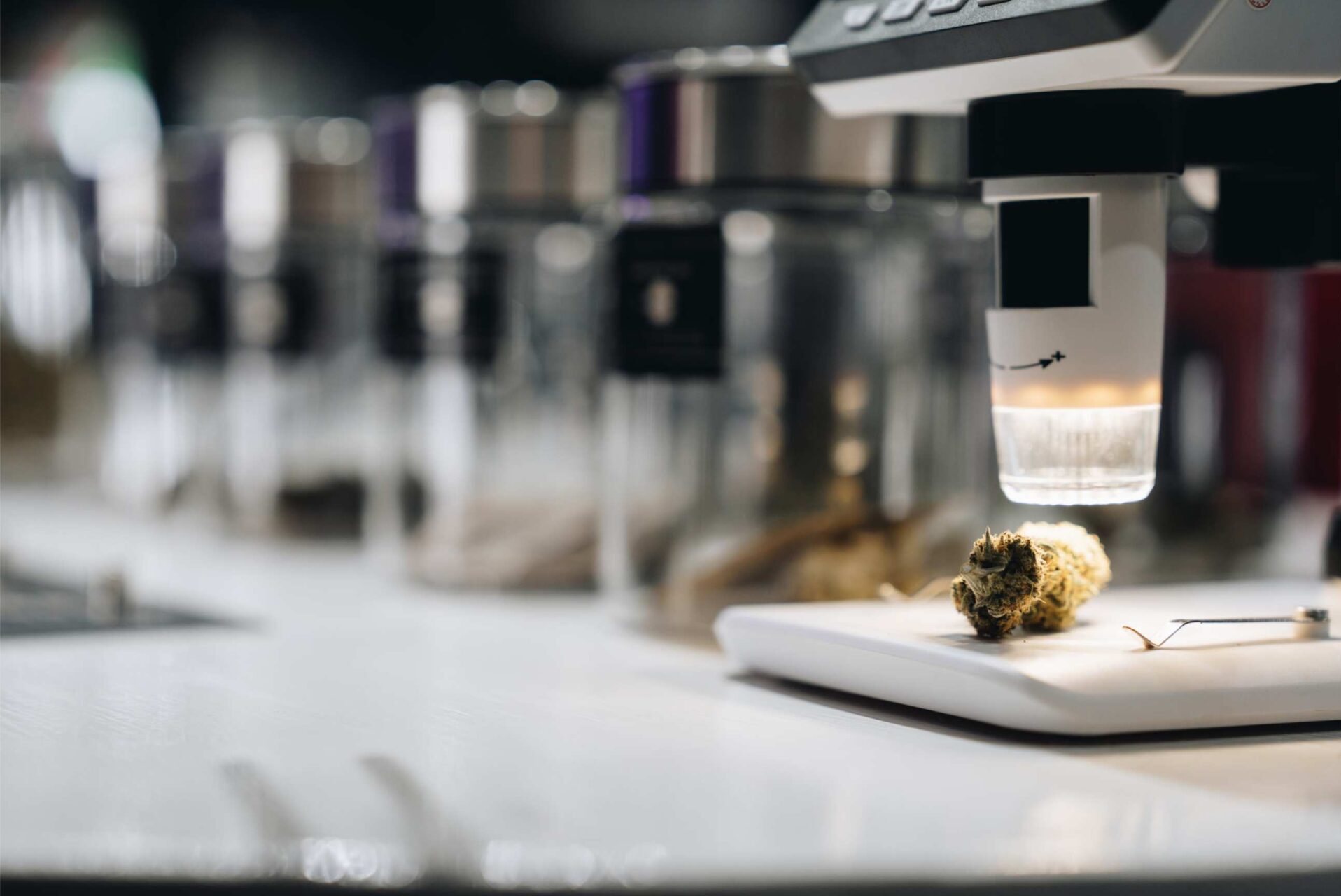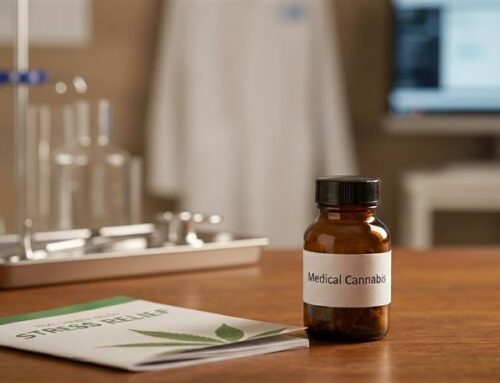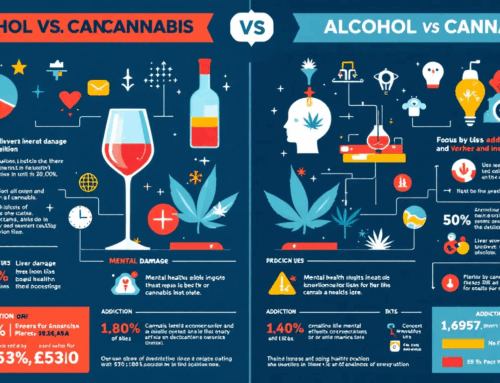Post-Traumatic Stress Disorder or PTSD is a mental health condition and has the potential to affect anyone who has experienced a traumatic event. The condition is quite severe and may worsen if left untreated and not managed in appropriate ways. PTSD can lead to several extreme issues like persistent feelings of anxiety, fear, and emotional distress. Further, it also disrupts the ability of the person to function and perform daily activities. In recent years, Medical Marijuana for Post-Traumatic Stress Disorder has emerged as a potential option for alleviating these symptoms and improving the quality of life for those affected by PTSD.
When it comes to the symptoms of PTSD, include flashbacks of memories, nightmares, severe anxiety, fear, and most of the time depression. Though there is no certain cure for PTSD, it typically involves therapy and medication to control the condition. However, in recent years, it was found that medical marijuana has emerged as a potential alternative or we can say a complementary treatment option to alleviate the symptoms.
In this comprehensive write-up, we will explore how medical marijuana can help people manage the symptoms of PTSD. We will also focus on its potential benefits, the logic behind it, and how it offers relief to those suffering from this challenging condition. Let’s dive in to know more.
What Is Post-Traumatic Stress Disorder (PTSD)?
Before going further, it is important to know that PTSD or we can say post-traumatic stress disorder is a mental health disorder that develops after an individual has to go through a traumatic event.
Some common symptoms of PTSD include:
- Flashbacks: Reliving the traumatic event through vivid memories or nightmares.
- Hyperarousal: Feelings of heightened anxiety, nervousness, or irritability.
- Avoidance: Steering clear of situations or people that remind the individual of the trauma.
- Negative Mood: Feelings of depression, guilt, or emotional numbness.
For those with PTSD, these symptoms can interfere with work, relationships, and daily life, making it crucial to find effective ways to manage the condition.
The Role of Medical Marijuana for Post-Traumatic Stress Disorder
Medical marijuana, derived from the cannabis plant, contains various compounds referred to as cannabinoids. Among these, the two most prominent are tetrahydrocannabinol (THC) and cannabidiol (CBD). THC is the compound responsible for the psychoactive effects associated with marijuana; this means it produces the “high” that users often seek from cannabis. However, CBD does not induce any psychoactive effects and it is frequently lauded for its calming, anti-inflammatory, and anxiety-reducing properties.
For centuries, cannabis has been utilized for medicinal purposes. In recent years, research has indicated that it may possess therapeutic potential in managing symptoms of PTSD. Studies have demonstrated that cannabinoids—especially CBD—can help reduce anxiety, enhance sleep quality, and even alleviate intrusive memories, which are prevalent symptoms associated with PTSD. Although more research is needed to understand these effects fully, the initial findings are promising.
How Does Medical Marijuana Help with PTSD Symptoms?
Several mechanisms explain how Medical Marijuana helps to provide relief from PTSD symptoms. Let’s have a closer look at the potential advantages and How medical marijuana alleviates PTSD.
- Reducing Anxiety and Stress
We talk about one of the most common symptoms of PTSD, which includes anxiety. Most of the time people struggling with PTSD must face severe anxiety and fear and even panic attacks, hypervigilance, with a constant sense of danger. According to the research, it was shown that both THC and CBD can help regulate the responses of the brain to stress by interacting with ECS.
The ECS is a system of receptors and neurotransmitters in the brain and body that helps regulate various functions, including mood, pain, sleep, and stress. Both THC and CBD can interact with these receptors to promote a sense of calm and relaxation. Specifically, CBD has been shown to reduce anxiety by influencing serotonin receptors in the brain, which play a key role in regulating mood.
- Improving Sleep
When people struggle with PTSD, they often face sleeping problems. They are not able to complete their quality sleep and also have insomnia. Due to extreme mental stress or anxiety, sleep disturbance is another major symptom of PTSD. Most individuals with this condition experience insomnia., nightmares, depression, and restless sleep. When people are not able to get proper and quality sleep, it further affects their physical health as well. Sleep disturbance can make it harder for a person to recover and manage the symptoms.
Medical marijuana, especially CBD, has been shown to help improve sleep quality. CBD may reduce anxiety and create a sense of calm, making it easier for individuals with PTSD to fall asleep and stay asleep. Additionally, THC may have sedative effects that promote relaxation and help people fall asleep faster. Some studies suggest that using low doses of THC in combination with CBD may be the most effective way to improve sleep quality for those with PTSD.
- Reducing Flashbacks and Intrusive Memories
Another severe symptom associated with PTSD includes continuous flashbacks and intrusive memories of traumatic events. These experiences trigger brain responses and remind us of the trauma, further causing us to relive the event in vivid detail. This situation can be emotionally draining and physically exhausting too. To avoid such cases, medical marijuana can be used to alleviate stress and bring positive flow to the brain.
Cannabinoids like THC have been shown to reduce the emotional intensity of memories. Medical marijuana helps to manage the symptoms and promote relationships by reducing anxiety, CBD may help prevent these intrusive memories from surfacing.
Conclusion
Medical marijuana has demonstrated considerable potential as a treatment for alleviating symptoms associated with PTSD, such as anxiety, insomnia, flashbacks, and emotional distress. The cannabinoids THC and CBD engage with the body’s endocannabinoid system (ECS), which aids in reducing anxiety, fostering relaxation, enhancing sleep, and regulating mood. Although research remains ongoing, numerous individuals suffering from PTSD report notable improvements in their overall quality of life after utilizing medical marijuana.
FAQs
How can medical marijuana help with PTSD symptoms?
Medical marijuana, particularly cannabinoids like THC and CBD, can reduce anxiety, improve sleep, alleviate flashbacks, and help manage emotional distress in individuals with PTSD.
Does CBD help with sleep problems related to PTSD?
Yes, CBD has been shown to improve sleep by reducing anxiety and promoting relaxation. This can help those with PTSD fall asleep more easily and achieve deeper, uninterrupted rest.
Is medical marijuana safe for PTSD patients?
While many patients report positive effects, it's essential to consult a healthcare professional before using medical marijuana. Proper dosage and monitoring are necessary to ensure safety and effectiveness.
How do I apply for a medical marijuana card in Connecticut?
To register for a medical marijuana card in Connecticut, follow these steps:
1. Check Eligibility
Ensure you have a qualifying medical condition listed by the Connecticut Department of Consumer Protection (DCP), such as chronic pain, cancer, or PTSD.
2. Consult a Registered Healthcare Provider
Visit a licensed healthcare provider who is registered with Connecticut’s medical marijuana program. They will evaluate your condition and issue a written certification if you qualify.
3. Create an Online Account
Go to the Connecticut Medical Marijuana Program’s website and create an online account to begin the registration process.
4. Submit Required Documents
Upload your healthcare provider’s written certification, proof of Connecticut residency (e.g., a utility bill or driver’s license), and a government-issued ID.
5. Pay the Application Fee
Pay the non-refundable registration fee of $100 ($50 for public assistance recipients) through the online portal.
6. Wait for Approval
Once your application is processed and approved, you’ll receive your medical marijuana card. You can also download a digital version of your card for immediate use.
7. Purchase at Licensed Dispensaries
With your card, you can legally purchase medical marijuana from any licensed dispensary in Connecticut.
How Medical Marijuana Helps in Glaucoma?
Medical marijuana can help in glaucoma by reducing intraocular pressure (IOP), which is a key factor in the condition's progression. Both THC and CBD have been shown to lower IOP, potentially preventing optic nerve damage. However, marijuana is not a cure and should be used under medical supervision as part of a broader treatment plan.





